Pete Sutton's Blog, page 28
December 9, 2015
Guest post from Dan Buri

Dan Buri's first collection of short fiction, Pieces Like Pottery , is an exploration of heartbreak and redemption that announces the arrival of a new American author. His writing is uniquely heartfelt and explores the depths of the human struggle and the human search for meaning in life. Mr. Buri's non-fiction works have been distributed online and in print, including publications in Pundit Press, Tree, Summit Avenue Review, American Discovery, and TC Huddle. The defunct and very well regarded Buris On The Couch, was a He-Says/She-Says blog musing on the ups and downs of marriage with his wife.Mr. Buri is an active attorney in the Pacific Northwest and has been recognized by Intellectual Asset Magazine as one of the World's Top 300 Intellectual Property Strategists every year since 2010. He lives in Oregon with his wife and two-year-old daughter. Pieces Like Pottery Links Currently at promotional pricing!AmazonBarnes & NobleiBooksKobo
Goodreads
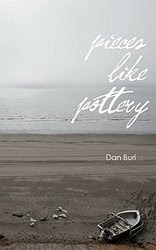
BRSBKBLOG asked Dan for "Ten things he learned by writing his book"
Ten Things I Learned When Writing My BookWhen Pete graciously offered me the opportunity to guest post about the ten things I learned when writing my book Pieces Like Pottery, my first thought was, “Well, who is going to care what I learned?” But then I thought of a piece of advice I received a long time ago and I remembered, “Why do I care who cares?”
1 - Don’t worry if you have anything important to say. If you’re inspired, write.
When asked about the fears and doubts that she had with her writing, Elizabeth Gilbert (best selling author of Eat, Pray, Love) said she finally had an epiphany that her “writing muse” was telling her that this isn’t her story. If she doesn’t tell it, she said, then the muse would move on to someone else who will. Ms. Gilbert discussed how freeing this was for her. She was no longer declaring to the reader: “Listen to me. I have something to say.” It was almost as if she had no other choice but to write. This opened her up to write every day without fear of the result. When writing my book, this advice was had a similar effect on me that it had for Ms. Gilbert.
2 - Be yourself.
I am constantly inspired by writers, but I made a decision early on in my writing not to try to duplicate any other author’s style. I want to be my own writer.
3 - Write every day.
Ira Glass is an American public radio personality and the host and producer of the radio and television show This American Life. He has a great quote for young creatives. In short, he encourages that your work is not going to be good when you’re first starting out. You may have an excitement for our craft and a killer taste for what’s good, but your execution is poor. The only way to improve your work, the only way to close the gap so that your work is as good as your ambitions, is to do a lot of work. Write. Every day. Every week put yourself on a deadline to write something new. It’s going to take awhile, but that’s normal. Good writing doesn’t come the first time you sit down. Learning this early in the writing of my book was important.
4 - Observe and empathize.
Good writers have a unique gift of empathy that allows them to tap into the “realness” of their characters. Good writers work hard to understand another person’s pains, hopes, dreams and fears, which allows them to create very compelling characters. I learned (I hope) to be more observant and more empathetic throughout the writing of this book.
5 - There is rarely the perfect time and place to write.
Once upon a time I thought I needed to write in a particular time and place. I would typically write at night and need to be in the perfect mood to do so. With a very demanding job, a wonderful wife, and two-year-old daughter, however, I quickly found that I was not finding much time to write at all. I had to begin writing anytime I could find a free 30 minutes. I was lucky I did too.
I think young writers always wait for the moment of inspiration to strike. These moments are amazing, but they are a great luxury. The truth, in my opinion, is that writing is as much about editing and revising as it is about the writing itself. I have so many pages of Pieces Like Pottery on the cutting room floor, so to speak. Maybe editing is a beautiful and inspiring process for some people, but for most writers I know, it is painstaking. There’s nothing inspirational about it for me. Having very little time to write each day helped me to begin taking my writing to the next level, to learn to hone it as a craft, rather than writing simply being an inspirational hobby. I had to find time to write whenever I could, regardless of whether the circumstances were perfect.
That being said, I still love to write at night over a nice glass of wine or a whiskey. Nothing beats that.
6 - Be vulnerable.
Yes, this sounds a lot like #2, but it’s different in my estimation. Readers want authenticity. They can see right through you if you’re faking it. I had to learn to be vulnerable as an author.
7 -Something is not a failure simply because the public doesn’t receive it the way you would like.
Louis C.K. is one of the most thoughtful and innovative comics alive right now. I heard him once speak about his HBO show, Lucky Louie, which was cancelled after one season in 2006. He was asked if he was disappointed with that and if he looked back at it as a failure. His answer was unequivocally: “No.” For him it was just another experience that taught him how to hone his craft, which was invaluable. This was an important piece of advice for me to learn throughout writing my book.
8 - Find balance.
I learned early in this process that I needed to find balance as an author. I needed to be dedicated to the craft and to write daily, but I also needed to find balance with the needs of my family, friends, and my own spiritual centeredness…oh yea, and my day job too I guess.
9 - Write what you know.
This is not a particularly insightful concept—it has been offered as advice to writers for decades—but it was important for me to remember this advice when writing my book. It’s easy to look at what’s on the bestseller’s lists and be tempted to write a novel you think the public might buy. I had to write what I knew, though, even if it wasn’t YA or fantasy fiction.
10 - Enjoy it.
We write for a reason don’t we?
I really do hope readers of BRSBKBLOG will check out my book. I love the support of thoughtful and intelligent readers like yours.
Many thanks to Dan for some wise words!
Published on December 09, 2015 02:50
December 7, 2015
Imaginary Cities
[image error]
And I finished Imaginary cities - wow, what can I say - this is one of the richest books I've read in a long time - it's so incredibly chewy though because every page you think - I don't know about that person, or that building, or that book, film, play, thing and spend half the time when you should be reading getting lost down a rabbithole of references. It took the author 15 years to write the book and I was lucky enough to meet him at the Future Cities festival in Bristol where I got to have a bit of a chat with him. Although I was only about a third of the way through at that point...
Taking Virilio's point - "The invention of the ship, was the invention of the shipwreck." The author posits that every dystopia is someone else's utopia and proceeds through almost 600 pages to explore this fascinating theme through history, architecture and story.
Reading this is a very rich experience and I have no hesitation in giving it 5 stars, even if it did take me about a month to read! (only because you can only read it in little gulps and take time to digest each magnificent morsel)
And I finished Imaginary cities - wow, what can I say - this is one of the richest books I've read in a long time - it's so incredibly chewy though because every page you think - I don't know about that person, or that building, or that book, film, play, thing and spend half the time when you should be reading getting lost down a rabbithole of references. It took the author 15 years to write the book and I was lucky enough to meet him at the Future Cities festival in Bristol where I got to have a bit of a chat with him. Although I was only about a third of the way through at that point...
Taking Virilio's point - "The invention of the ship, was the invention of the shipwreck." The author posits that every dystopia is someone else's utopia and proceeds through almost 600 pages to explore this fascinating theme through history, architecture and story.
Reading this is a very rich experience and I have no hesitation in giving it 5 stars, even if it did take me about a month to read! (only because you can only read it in little gulps and take time to digest each magnificent morsel)
Published on December 07, 2015 05:22
Guest post - James Roberts - To PC or not to PC that is the question?

James Roberts is a forty-something writer and self-proclaimed fool who currently resides in the remoter outreaches of the Highlands of Scotland. His debut novel, Pardon Me: A Victorian Farce, has been described (by himself) as one of the funniest books ever written in the English language. To see just how wrong he is please visit http://www.jamesroberts.scot
On Being PC
Somewhere amongst the jacket sleeve blurb of my new novel I offer up the following caveat: Pardon Me: A Victorian Farce is set in the 1890s; a time when an English gentleman enjoyed talking down to the rest of the world and ‘PC’ meant Police Constable. It is, I believe, the literary equivalent of 'may contain nuts' or 'beware strobe lighting'. The contents will not be to everybody's tastes, but only the unusually sensitive will find themselves being hospitalized.
Then I find my inbox is inundated with green fonted emails from offended readers accusing me of all sorts of unpleasant 'isms'. The epistolary savaging is so severe, one would think I was the monstrous love child of Leni Riefenstahl and Bernard Manning. Now it is my turn to take offence. I pride myself on being a liberal. I take the Guardian. I drink Fairtrade coffee. Some of my best friends are feminists. At the last count I have been to three gay weddings; and as a guest, not stood outside waving a placard. So to these vulgar naysayers I explain, with the greatest exercise of will and patience, that my novel is a 'parody' of the mores and values of the fin de siècle, not a 'promotion'. Furthermore, I add, now starting to lose my sangfroid somewhat, the plot centres upon the travails of a hapless diplomat sent to the colonies to handle a dangerous outbreak of l’amour de l’impossible. It is not the sequel to Anne of Green Gables.
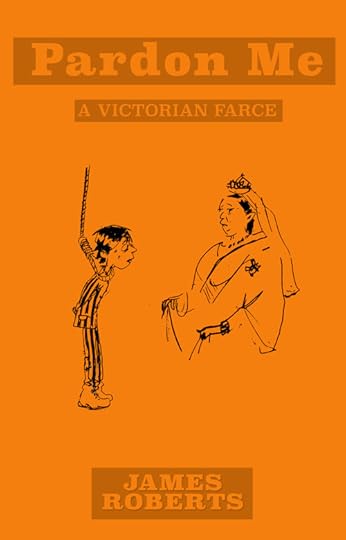
So why am I bothering you with all this dear reader? Because it got me to thinking about the pros and cons of 'being PC' in this day and age and, the more I pondered the issue, the more I felt that I had something to say. Nothing too profound obviously, I am, after all, the writer of novels in which gentlemen have very terrible things happening in their trouser department; Martin Heidegger I am not. But it may entertain a passing minute as you scroll between Facebook and your favoured online bookmaker.
I will start, if I may, by examining the label itself. My research suggests that the term PC is generally deployed pejoratively. Especially when coming from the pen of the British tabloids, who, disliking semantic ambiguity, like to chuck in the suffix 'gone mad' just to reassure their readers they themselves haven't gone soft. From this I have drawn the conclusion that the 'man in the street', by and large, views being PC as an attack on his inalienable right to accuse foreigners of stealing his job/car/wife/country (delete as appropriate), whilst simultaneously robbing him of the pleasure of merrymaking at the expense of minorities. As one of the terribly un-PC P.Cs. in the fabulous sitcom Early Doors says: "You can't even laugh at dwarfs anymore."
Now, as one John Lydon (aka Jonny Rotten): once said: "I've met the man in the street, and he's a c*nt."But then let us not deny that we liberals, we bookish literati types, we guests at gay weddings, we too have our issues with being PC. It is a problem that can be summarised in two words - Magna Carta. Ergo, what we see as at stake here is freedom of speech. Where, we ask, does PC end and censorship begin? Moreover, what will be the possible endgame of all this PCness?
Let me put some flesh on these fears. What begins as a little linguistic bowdlerising may lead to a bit of book banning and from here we are just a populistic stones throwing away from a night of book burning. And as 19thCentury journalist (and German Jew) Christian Heine rather prophetically said: "Where they have burned books, they will end in burning human beings." In sum, at some juncture we fear PC may become flipped and become CP: Correct Politics. We are not quite there yet. Those of us fortunate to live in the UK are not living under the jackboot of a tyrannical dictatorship and neither are we being governed by the whims of some cheese munching lardy bum with big hair (for I refer here to Kim Jong-un, not Boris Johnson).
What we are living in, however, is a society in which we are increasingly encouraged to take offence at the slightest provocation (people of restricted height included) and where, as a result, our politicians spend more time apologizing for something they may have said and polishing up on their PR work than they do doing something outrageously brave like saving the planet from global warming or tackling galloping economic inequality. As a consequence, more people vote on X Factor than in general elections because, let's be honest, if you are going to be forced to make a choice between a number of equally anodyne acts, it helps if the contestants are good looking and the winner is guaranteed to evaporate two weeks after Christmas.
So, as Lenin once said when on a trip to Siberia, courtesy of the Okhranka: What is to be done? How do we of liberal sensibilities halt the onward march of the PC Brigade without joining the mass ranks of the scapegoating and dwarf bashing hoi polio? I believe we can all make a start by remembering how to laugh at ourselves again. By all means be serious and sensitive about others, but never shy away from finding yourself mildly risible. This has always been a celebrated tradition of British culture after all. Did we not invent the court jester? Did the Dark Ages not end the day this same court jester sang a funny song about the King's nob and got away with it? Who knows, the idea may even 'go 'viral' as social media types are wont to say. And should you feel I am being a little factious, puerile even, then answer me this. Has anyone who finds themselves faintly ridiculous ever started a war? If Kaiser Wilhelm II had not been so touchy about his withered arm there would never have been a First World War. I'll skip Hitler because I don't want our German cousins to think I am picking on them. What about the Taliban...[Ed - the rest of this blog has been removed].
Published on December 07, 2015 03:29
December 3, 2015
Neglecting the blog
I should be posting a review of my time at Sanctum - https://vimeo.com/133755713
and the Future Cities festival
and my forthcoming appearance at Talking Tales - https://www.facebook.com/events/16876...
and perhaps the reason I'm not would best be because of being "busy"
But truth be told I am lacking motivation at the moment. I feel like hibernating. I have Forever Hungry to edit, a story to write for Refuge (An Australian horror anthology for charity) and my monthly "Tales for the Ferryman" for Far Horizons. As well as a story for the aforementioned Talking Tales.
But I am not.
I am suffering a massive attack of sloth.
Hope to back, fighting fit, soon - I have too much to do to give in to this ennui!
and the Future Cities festival
and my forthcoming appearance at Talking Tales - https://www.facebook.com/events/16876...
and perhaps the reason I'm not would best be because of being "busy"
But truth be told I am lacking motivation at the moment. I feel like hibernating. I have Forever Hungry to edit, a story to write for Refuge (An Australian horror anthology for charity) and my monthly "Tales for the Ferryman" for Far Horizons. As well as a story for the aforementioned Talking Tales.
But I am not.
I am suffering a massive attack of sloth.
Hope to back, fighting fit, soon - I have too much to do to give in to this ennui!
Published on December 03, 2015 07:35
November 24, 2015
Sad News David J Rodger 1970-2015
It is with a heavy heart that I report that David J Rodger took his own life at the weekend.
[image error]
I have been stunned and, of course, terribly saddened by this news.
His guest post on this blog is here: http://brsbkblog.blogspot.co.uk/2014/07/todays-guest-post-is-by-david-rodger.html
Tom has some very nice words on his website - http://www.thomasdavidparker.com/for-david/
Jo Hall has also some nice words here: https://hierath.wordpress.com/2015/11/24/david-j-rodger-1970-2015/
David was in deep pain with anxiety and depression yet he hid it so well. Only on our last meeting did I feel like something was wrong. Yet even then he was full of plans, his last mail to me looking towards the future. David and I (with Tom Parker) were planning on working on a project together next year.
He will be sorely missed by the Bristol writing community, and of course his friends and family.
Rest in Peace!
[image error]
I have been stunned and, of course, terribly saddened by this news.
His guest post on this blog is here: http://brsbkblog.blogspot.co.uk/2014/07/todays-guest-post-is-by-david-rodger.html
Tom has some very nice words on his website - http://www.thomasdavidparker.com/for-david/
Jo Hall has also some nice words here: https://hierath.wordpress.com/2015/11/24/david-j-rodger-1970-2015/
David was in deep pain with anxiety and depression yet he hid it so well. Only on our last meeting did I feel like something was wrong. Yet even then he was full of plans, his last mail to me looking towards the future. David and I (with Tom Parker) were planning on working on a project together next year.
He will be sorely missed by the Bristol writing community, and of course his friends and family.
Rest in Peace!
Published on November 24, 2015 04:51
November 12, 2015
Guest Post - Narek Vardanyan - Best Crowdfunding Videos: The Formula for Success

Narek is an author and consultant and blogs about Crowdfunding at http://thecrowdfundingformula.com/ind...
Today he has dropped by to talk about Crowdfunding videos.
Best Crowdfunding Videos: The Formula for Success
What makes the best Crowdfunding videos the best, and how do you go about creating a cinematographic masterpiece for your crowdfunding campaign? I get a lot of questions about crowdfunding videos and what they should look like, and I’m constantly fielding requests to comment on videos people create for their campaigns. So, to save my inbox from the onslaught (and help out those who are too shy to ask), I thought it was high time I wrote an article on the results of my research of 206 successful crowdfunding campaigns.
[image error]
Top tips for creating irresistible crowdfunding videos
Be realistic
You don’t need to be a crowdfunding genius to work out that video is an important element of your campaign. In fact, it’s probably the most important. Showing is always far more effective than telling — and a film is much easier to click on than a lengthy paragraph is to read — so if you can afford to, hire a professional.
If money’s tight and you need to shoot your video yourself, then it’s time to enlist the help of someone with an iPhone or iPad. Don’t despair! It might sound low budget, but you can shoot a good quality video with either, in fact, if they’d been around in the 70’s George Lucas might have used one and Star Wars would have looked very different (dash cam on the Millennium Falcon, anyone?).
Be personable
Creating anything new is an incredibly personal experience. People like people (mostly), so make sure your video tells your story. The story behind who you are as a creator and why you started your mission. Honesty enables your backers to fall in love with your story, play a role in it and get behind your campaign. I feel like it’s all I ever say but…people fund people, not ideas, missions or projects. You have to be likable, or backers won’t hand over their money.
[image error]
Keep it short
We want to get information about your idea quickly, not devote a whole afternoon to it. The best Kickstarter videos are all under three minutes, so follow their example and keep it short!
Structure your video
When it comes to crowdfunding videos, there are tons of ‘listicles’ (articles that take the form of lists) out there parroting rule after rule after rule. Ignore them. In my experience, the most successful videos on Kickstarter follow a similar structure.
• Introduction: This is brief, just a few words.
• Problem: Discuss (briefly!) what problem you are trying to solve, and why your contemporaries haven’t managed it yet.
• Solution: This is the part where you talk about your motivation — and a little about your product. Viewers want to know why you decided to solve the problem and how your solution will help them (people might like people, but they also like products that make life easier).
• Team: Introduce your team. They should come across as capable and professional, people you’d trust with your hard earned cash.
• Technology: How are you going to solve your problem and what technology are you going to use? Remember what I said about honesty? Yep, well this is the part where you make your plans transparent, just not too techy.
• Outcomes: Now you can really talk about your product! Introduce backers to the final design.
• Call to Action: Don’t let your crowdfunding video fizzle out. Capitalize on all the interest you’ve built up during your video and end on a call to action — something that encourages potential backers to act straight away. Try to make them feel like part of your team, an integral member who’s instrumental to its success.

Don’t beg
You want to inspire your audience. Avoid asking directly for ‘help’ or ‘donations,’ instead ask them to contribute, to become a partner. Together, you can make something spectacular.
Consider the splashThe front page of your video (the bit backers see before they click play) is called the splash, and it’s important. Make sure the first frame of your video is an image that will encourage a click. Expressive, beautiful, mysterious and (unsurprisingly) sexy are the big winners in this game.
Choose music to inspireI don’t care how good your idea, video or product is, if you introduce it to me over the dulcet tones of heavy metal, I’m not going to invest.
All the best crowdfunding videos have background music that has spirit and leaves an impression (although I should point out they don’t dominate the finished video). A quick search for ‘inspirational music’ on marmosetmusic.com is usually all it takes to find the perfect track.
Analyzing One of My favorite Kickstarter videos: Elevation Dock for iPhone
Now, I would generally advise people to stick to the structure above. However, some campaigns (and campaigners) are built to break the mold. Here’s a quick breakdown of my favorite Kickstarter video.https://www.youtube.com/watch?v=Xg9xgSLfz2A

1. ProblemSo all those things I said about sticking to the rules? Yep, Casey broke some. His video started with a simple and effective explanation of the problem. In fact, he devoted a whole 27 seconds to demonstrating just how widespread a problem it is, showing us a ton of poorly designed iPhone docks. He knows a huge proportion of his audience will sympathize with his experience, and he’s compelling them to keep watching. You’ll also notice these first 27 seconds are accompanied by a somewhat anxious backing track — fast, shrill notes building to a climax.
2. SolutionThe 28th second, that’s where it all changes. That shrill music gives way to inspiring, deliberate beats; the camera pans confidently around a new dock, and it’s almost a relief to see the iPhone sitting snugly having spent half a minute watching it jumping all over the place. The atmosphere change gives the new dock the real ‘wow’ factor. Gone is the hand clumsily disconnecting the phone from the docks, now the iPhone is removed in one swift, confident motion.
3. IntroductionIn my defense, I said early on that he did it all wrong (except that, in this context, it was right). Now comes the introduction, the personal element. Casey underlines why hedecided to create this product, and it’s a reason that will resonate with everyone who’s kept watching up until this point — frustration. Then he jumps to…
4. Expected OutcomeNow Casey shows us what he hopes to achieve and the features his product will incorporate. He highlights why his product is different from his competitors and he makes it obvious that he has the solution to a problem many people are experiencing.
5. TeamThere was no team in this video. Casey was the frontman (never an easy job), but he does talk about ‘we,’ so we the audience know there’s a team working behind the scenes.
6. TechnologyCasey tells us what technology and materials he will use to produce the dock and then we get to see him in a factory. We’re building a picture of him as a capable guy who’s happy to get his hands dirty. In short, we’re starting to trust that he knows what he’s doing. And just in case we weren’t? He highlights the quality of his product by letting us know that this is the same technology Apple uses. Clever, since Apple fans are a) his target market and b) love absolutely anything related to the brand.
7. OutcomeNow, the real outcome. We get a nice succinct description of the new dock and its features, a refresher on why it’s head and shoulders above the competition (cue frustrated, jittering hand once again popping into shot to emphasize the problem). Oh, and a nice little name drop because ‘Jeff thinks it’s great’ (Jeff’s the VP of Apple, for those of you who didn’t know).
8. Call to actionCasey finishes his work, washes his hands (because that’s what a guy you can trust would do) and then tells us how excited he is. He’s trying to kinder a similar excitement in his audience. If he succeeds, we’re that much more likely to help him out.Just to emphasize how Apple friendly the new dock is, the video ends with a demonstration of how well the dock works with other Apple products — because what self-respecting Apple enthusiast owns only an iPhone?
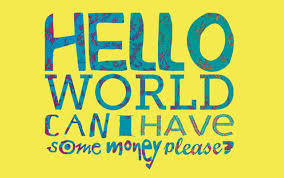
To sum up
So what’s the reason why I love this Kickstarter campaign video so much? Because Casey knows his audience. He’s targeting Apple owners exclusively, and he’s made sure to mirror that brand’s established video presentation style. He’s evoking similar feelings in his audience as they’d experience watching Apple unveil its latest product.
Oh, and he raised $25,000 in the first two hours after launch. By the time his campaign closed, a total of 12,500 people had chosen to back the Elevation dock, and Casey and his film raised a cool $1.5 million in the process.
Which is why I think Casey and his team deserve the accolade for Best Kickstarter Video, but the crowdfunding world moves quickly. Who’s to say that, in a few short months, I won’t be sitting here writing an article about that brilliant video you’ve just made? After all, success has a formula — you only need to discover it.
Published on November 12, 2015 05:24
November 2, 2015
Spine-Tinglers
Last night, braving the fog, I went along to an event organised by the
Bristol Women Writers
Spine-Tinglers billed as "members and guests make you shiver or smile with their spine-tingling stories."
We had decapitations, carnivorous slugs, dancing nuns, rats, ghostly goings on, icy wastes, death row and much much more. It was a great evening of tales and I had a great time.
It was really atmospheric walking home in the fog afterwards too!

Spine-Tinglers billed as "members and guests make you shiver or smile with their spine-tingling stories."
We had decapitations, carnivorous slugs, dancing nuns, rats, ghostly goings on, icy wastes, death row and much much more. It was a great evening of tales and I had a great time.
It was really atmospheric walking home in the fog afterwards too!

Published on November 02, 2015 01:00
Belated literature shenanigans
Bristol Festival of Literature came to an end on October 24th and I've been remiss in blogging.
On Tuesday it was "Unreliable Histories" in Redcliffe caves - the caves are a special venue and always packed out and this year was no exception. The Bristol Writers filled the caves with some wonderful tales
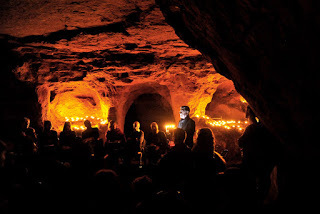
On Wednesday I was reading at "Written from Art" and it was also Word of Mouth at the Thunderbolt.
The Written from art event went really well and Carol Peace's studio is well worth a visit. The poetry after in the Thunderbolt was also really good.
 (One of Carol's sculptures)
(One of Carol's sculptures)
On Thursday I took a break from the festival, but still did some book related stuff by dropping in to see Jonathan L Howard signing books at Forbidden Planet.
Friday was the Flash Slam, compered by Nikesh Shukla. The North Bristol Writers came second. Mel Ciavucco of the Stokes Croft Writers has a fantastic blog about it here & yes we were taken aback by having to write a story in 20 minutes. Congratulations to the Bristol Novelists for winning!
Saturday was the wrap up - the Speakeasy - with music, Talking Tales and an interview with Tracey Alexander. Time to let our hair down and unwind from another fabulous festival.
The festival was a great success and people are already talking about next year - which is great!
On Tuesday it was "Unreliable Histories" in Redcliffe caves - the caves are a special venue and always packed out and this year was no exception. The Bristol Writers filled the caves with some wonderful tales

On Wednesday I was reading at "Written from Art" and it was also Word of Mouth at the Thunderbolt.
The Written from art event went really well and Carol Peace's studio is well worth a visit. The poetry after in the Thunderbolt was also really good.
 (One of Carol's sculptures)
(One of Carol's sculptures)On Thursday I took a break from the festival, but still did some book related stuff by dropping in to see Jonathan L Howard signing books at Forbidden Planet.
Friday was the Flash Slam, compered by Nikesh Shukla. The North Bristol Writers came second. Mel Ciavucco of the Stokes Croft Writers has a fantastic blog about it here & yes we were taken aback by having to write a story in 20 minutes. Congratulations to the Bristol Novelists for winning!
Saturday was the wrap up - the Speakeasy - with music, Talking Tales and an interview with Tracey Alexander. Time to let our hair down and unwind from another fabulous festival.
The festival was a great success and people are already talking about next year - which is great!
Published on November 02, 2015 00:54
October 20, 2015
Interview with David Thomas Moore
David Thomas Moore is the commissioning editor over at
Abaddon
. We tracked him down to talk to him about the open subs process. Many thanks to him for the great answers!
At the beginning of the year Abaddon ran an Open Submissions Month, and they’re about to release three novellas by writers plucked from the (hundreds) of submissions they received.The three novellas are Gods & Monsters: Rupert Wong, Cannibal Chef by Cassandra Khaw ; Invaders From Beyond: Midnight In The Garden Centre Of Good And Evil by Colin Sinclair; and Tomes Of The Dead: The Lazarus Conundrum by Paul Starkey.
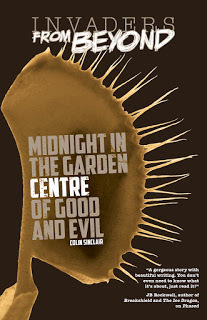
Were you surprised at the number of submissions?
Yes. We got 70 submissions, in the end, having got 89 last time (in 2012), and this one got a lot more attention on the social medias, so it’s a fair bit less than I expected. (This is actually not bad for novella submissions. Our peers in the industry will talk about subs piles in the hundreds, but that’s for novels; the dream for most new writers is a fat, rhino-choking epic novel, or three. A novella window tends to attract more pragmatic writers looking for concrete opportunities.) I think the big factor there is there’s more competition for novella submissions at the moment, with some of our esteemed rivals getting interested in the model. That said, the standard was much higher than last time (which brings me to your next question...).
Did the quality of the submissions meet or exceed your expectations?
Hugely exceeded! Anyone who’s worked with “slush,” as it is unglamorously known, will tell you that anything up to nine tenths of submissions rule themselves out in the first few lines: they’ve failed to follow the guidelines, or their plotlines are frankly incomprehensible, or they’ve just not developed their craft enough yet. My experience is 2012 was more or less along those lines; even being fairly generous, I knocked about two thirds of pitches out in the first pass. This time, the general quality was outstanding; my first pass only knocked out around a third of the subs. My best guess is our promotional efforts reached more serious contenders than hopefuls, people who have already been writing and submitting for a while and were looking for opportunities. Who knows? But, hard as it made the job, it was lovely to have such excellent material to work through.
Did you have a set number of titles in mind when you opened submissions?
At least two: one set in our existing worlds, one in a new world. The latter was more of an optional extra in 2012 (although we did find one – E. E. Richardson’s excellent Ritual Crime Unit), but I definitely wanted to bring a new series out this year to mark Abaddon’s ten-year anniversary. We picked three in the end!
Tell us a bit about the process of reading the slush pile - how many people were involved, how much time did it take?
Just me! It’s my name on the office door (or would be if I had an office), it’s my call, so ultimately I had to read them. It took maybe four weeks, around other duties.
I’ve already mentioned the first pass – the easy one, where I rule out the writers who’ve already ruled themselves out. I generally skim, I’m usually happy to make a decision in less than a page, I’m deliberately being fairly generous (putting edge cases back into the pile rather than discarding them). This process can cut anything up to nine tenths of a slush pile; in this case, I just about managed to cull a third.
The second pass was more of a double-check – e.g. I kept this submission in because I wanted to give it a fair go, but do I really think it has a chance? – and an opportunity to cut very similar proposals (obviously I’m not going to publish two different books about skateboarding Nazi lizards, so I might as well just keep the best skateboarding Nazi lizard pitch in and drop the others). It takes a bit longer. That cut another third.
The third pass was more hard-headed; they were all excellent pitches, but which ones did I really love? Which ones had more commercial viability? Which ones best reflected our ethos, or drove diversity? That trimmed me down to eight final pitches – four new world, four old world – and then we went to a sit-down meeting with the whole team, where I sold the pitches to my colleagues.
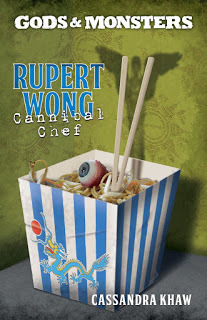
Where there many almost published submissions - ones that were almost there but not quite right?
Damn straight. The eight I took into the final pitch meeting with my colleagues weren’t everything; there were probably a dozen I’d have happily published, and another ten I’d have been willing to work with the author to bring up to scratch. Regrettably, I only have so much space on my publishing schedule. I tried to offer some sort of helpful feedback whenever I could.
A few were dropped for reasons unconnected to quality – I had an absolutely stunning superhero pitch (about “match-fixing” between heroes and villains to rig media coverage and sponsorship, one of my absolute favourites), but the bosses ruled it out on commercial grounds. Sounds crazy in the age of endless Avengers movies, but sales figures suggest superheroes struggle in prose. The frustrating thing there is I have to go back to the writer without any real notes to offer, since really the pitch was good!
Tell us a little about coming across the ones that will be published - what made them stand out?
Different things! Cass Khaw’s Rupert Wong, Cannibal Chef was brilliant all round, and I knew in the first pass that I’d be taking it to the pitch meeting. The biggest mark in her favour was voice; Gods & Monsters has a very specific tone – irascible, snarky, bleak – and she nailed it in the first few paragraphs. The setting, a decidedly mythic Kuala Lumpur, and the neurotic, unprincipled hero confirmed the choice.
Paul Starkey’s The Lazarus Conundrum got me with the concept. Tomes of the Dead trades on inverting and twisting the zombies genre – zombie love/murder triangle, zombie-revisionist history, zombies vs vampires (or ghosts) – and the concept behind Paul’s police procedural (someone doesn’t turn into a zombie, in a world where everyone does) fit the bill perfectly. The bizarre creativity of the nihilistic “zombarchists” and a totalitarian NHS clinched it.
Colin Sinclair’s Midnight in the Garden Centre of Good and Evil was my choice for a new series. Not, oddly, because it was particularly out there (I sort of expected to find myself picking something very strange), but because of the promise it showed; funny or subversive takes on the alien invasion oeuvre, a rich vein to mine. His slackers vs body snatchers outline, and the wonderfully hapless trust-funder hero, made that decision.
If they all had anything in common, it was a clear, strong outline. That “elevator pitch” thing? Can you sell me your book in 20 seconds? Try it. There have been great books that have eluded summary, but as a rule, the more easily you can sum up the book and hit me with it, the stronger the writing and outline will be.
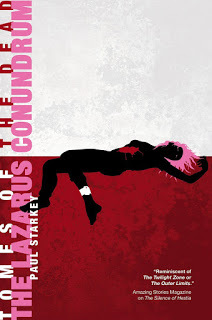
This is the first open subs for a while, will you do another?
Absolutely. I can’t commit to any given schedule – it’ll depend on time, on publishing commitments, on money – but both of the open subs months I’ve run have found some amazing talent. I’m thinking not less than a year from now?
What does it take to be an Abaddon author?
A hint of oddness? Abaddon’s a pulp imprint, of sorts, but a smart, twisted sort of pulp. We pick up popular tropes – zombies, steampunk, Robin Hood, space opera, military SF – and find ways to subvert them, to turn them over and give them a bit of a shake. A bit of puckishness is essential.
You have to love action, and have a good feel for writing it. I want smart books, but I also want explosions and fightin’. Your action sequences need to flow well, feel pacy and be easy to visualise.
And I guess you have to have a taste for the darker stuff. Violence and the grotesque feature pretty heavily in our books, even the non-horror. I don’t necessarily need you to make my stomach turn, but you’ll need to show me you’re comfortable hanging out in the shadows.

What makes a good novella?
Brevity. *mic drop*
Okay, seriously. A lot of the same rules apply as with short stories. When you have about a third the word count of a full novel, you have to make the words count. Plan out your story tightly, try to strike a balance between complexity and pace, and don’t waste time. Sketch your surroundings, show don’t tell, make your dialogue have a point. It doesn’t hurt to put a twist in the end, either.
In one sentence what is your best piece of advice for new writers?
Oh, jeez, one sentence? Take every opportunity, as long as no-one’s taking the mick.
If I can cheatily embellish on that: too many aspiring writers have a career trajectory planned, which almost certainly involves a six-book epic and a movie deal. Which is great; you gotta have dreams. But in the meantime, you can be writing for money right now – and honing your craft to boot – if you just keep your eyes open and take every opportunity as it comes. Two of my favourite authors to work with take enormous pride in having written, respectively, an unofficial Dawson’s Creek episode guide and My Little Pony tie-in books for money. Not because those were the best things they did, or the most successful, but because they took the gig, gave it their all, and delivered the best damn early-’nineties-TV-show-episode-guide and/or children’s picture book they could.
If you can do that, then you’re a writer, kid.
At the beginning of the year Abaddon ran an Open Submissions Month, and they’re about to release three novellas by writers plucked from the (hundreds) of submissions they received.The three novellas are Gods & Monsters: Rupert Wong, Cannibal Chef by Cassandra Khaw ; Invaders From Beyond: Midnight In The Garden Centre Of Good And Evil by Colin Sinclair; and Tomes Of The Dead: The Lazarus Conundrum by Paul Starkey.

Were you surprised at the number of submissions?
Yes. We got 70 submissions, in the end, having got 89 last time (in 2012), and this one got a lot more attention on the social medias, so it’s a fair bit less than I expected. (This is actually not bad for novella submissions. Our peers in the industry will talk about subs piles in the hundreds, but that’s for novels; the dream for most new writers is a fat, rhino-choking epic novel, or three. A novella window tends to attract more pragmatic writers looking for concrete opportunities.) I think the big factor there is there’s more competition for novella submissions at the moment, with some of our esteemed rivals getting interested in the model. That said, the standard was much higher than last time (which brings me to your next question...).
Did the quality of the submissions meet or exceed your expectations?
Hugely exceeded! Anyone who’s worked with “slush,” as it is unglamorously known, will tell you that anything up to nine tenths of submissions rule themselves out in the first few lines: they’ve failed to follow the guidelines, or their plotlines are frankly incomprehensible, or they’ve just not developed their craft enough yet. My experience is 2012 was more or less along those lines; even being fairly generous, I knocked about two thirds of pitches out in the first pass. This time, the general quality was outstanding; my first pass only knocked out around a third of the subs. My best guess is our promotional efforts reached more serious contenders than hopefuls, people who have already been writing and submitting for a while and were looking for opportunities. Who knows? But, hard as it made the job, it was lovely to have such excellent material to work through.
Did you have a set number of titles in mind when you opened submissions?
At least two: one set in our existing worlds, one in a new world. The latter was more of an optional extra in 2012 (although we did find one – E. E. Richardson’s excellent Ritual Crime Unit), but I definitely wanted to bring a new series out this year to mark Abaddon’s ten-year anniversary. We picked three in the end!
Tell us a bit about the process of reading the slush pile - how many people were involved, how much time did it take?
Just me! It’s my name on the office door (or would be if I had an office), it’s my call, so ultimately I had to read them. It took maybe four weeks, around other duties.
I’ve already mentioned the first pass – the easy one, where I rule out the writers who’ve already ruled themselves out. I generally skim, I’m usually happy to make a decision in less than a page, I’m deliberately being fairly generous (putting edge cases back into the pile rather than discarding them). This process can cut anything up to nine tenths of a slush pile; in this case, I just about managed to cull a third.
The second pass was more of a double-check – e.g. I kept this submission in because I wanted to give it a fair go, but do I really think it has a chance? – and an opportunity to cut very similar proposals (obviously I’m not going to publish two different books about skateboarding Nazi lizards, so I might as well just keep the best skateboarding Nazi lizard pitch in and drop the others). It takes a bit longer. That cut another third.
The third pass was more hard-headed; they were all excellent pitches, but which ones did I really love? Which ones had more commercial viability? Which ones best reflected our ethos, or drove diversity? That trimmed me down to eight final pitches – four new world, four old world – and then we went to a sit-down meeting with the whole team, where I sold the pitches to my colleagues.

Where there many almost published submissions - ones that were almost there but not quite right?
Damn straight. The eight I took into the final pitch meeting with my colleagues weren’t everything; there were probably a dozen I’d have happily published, and another ten I’d have been willing to work with the author to bring up to scratch. Regrettably, I only have so much space on my publishing schedule. I tried to offer some sort of helpful feedback whenever I could.
A few were dropped for reasons unconnected to quality – I had an absolutely stunning superhero pitch (about “match-fixing” between heroes and villains to rig media coverage and sponsorship, one of my absolute favourites), but the bosses ruled it out on commercial grounds. Sounds crazy in the age of endless Avengers movies, but sales figures suggest superheroes struggle in prose. The frustrating thing there is I have to go back to the writer without any real notes to offer, since really the pitch was good!
Tell us a little about coming across the ones that will be published - what made them stand out?
Different things! Cass Khaw’s Rupert Wong, Cannibal Chef was brilliant all round, and I knew in the first pass that I’d be taking it to the pitch meeting. The biggest mark in her favour was voice; Gods & Monsters has a very specific tone – irascible, snarky, bleak – and she nailed it in the first few paragraphs. The setting, a decidedly mythic Kuala Lumpur, and the neurotic, unprincipled hero confirmed the choice.
Paul Starkey’s The Lazarus Conundrum got me with the concept. Tomes of the Dead trades on inverting and twisting the zombies genre – zombie love/murder triangle, zombie-revisionist history, zombies vs vampires (or ghosts) – and the concept behind Paul’s police procedural (someone doesn’t turn into a zombie, in a world where everyone does) fit the bill perfectly. The bizarre creativity of the nihilistic “zombarchists” and a totalitarian NHS clinched it.
Colin Sinclair’s Midnight in the Garden Centre of Good and Evil was my choice for a new series. Not, oddly, because it was particularly out there (I sort of expected to find myself picking something very strange), but because of the promise it showed; funny or subversive takes on the alien invasion oeuvre, a rich vein to mine. His slackers vs body snatchers outline, and the wonderfully hapless trust-funder hero, made that decision.
If they all had anything in common, it was a clear, strong outline. That “elevator pitch” thing? Can you sell me your book in 20 seconds? Try it. There have been great books that have eluded summary, but as a rule, the more easily you can sum up the book and hit me with it, the stronger the writing and outline will be.

This is the first open subs for a while, will you do another?
Absolutely. I can’t commit to any given schedule – it’ll depend on time, on publishing commitments, on money – but both of the open subs months I’ve run have found some amazing talent. I’m thinking not less than a year from now?
What does it take to be an Abaddon author?
A hint of oddness? Abaddon’s a pulp imprint, of sorts, but a smart, twisted sort of pulp. We pick up popular tropes – zombies, steampunk, Robin Hood, space opera, military SF – and find ways to subvert them, to turn them over and give them a bit of a shake. A bit of puckishness is essential.
You have to love action, and have a good feel for writing it. I want smart books, but I also want explosions and fightin’. Your action sequences need to flow well, feel pacy and be easy to visualise.
And I guess you have to have a taste for the darker stuff. Violence and the grotesque feature pretty heavily in our books, even the non-horror. I don’t necessarily need you to make my stomach turn, but you’ll need to show me you’re comfortable hanging out in the shadows.

What makes a good novella?
Brevity. *mic drop*
Okay, seriously. A lot of the same rules apply as with short stories. When you have about a third the word count of a full novel, you have to make the words count. Plan out your story tightly, try to strike a balance between complexity and pace, and don’t waste time. Sketch your surroundings, show don’t tell, make your dialogue have a point. It doesn’t hurt to put a twist in the end, either.
In one sentence what is your best piece of advice for new writers?
Oh, jeez, one sentence? Take every opportunity, as long as no-one’s taking the mick.
If I can cheatily embellish on that: too many aspiring writers have a career trajectory planned, which almost certainly involves a six-book epic and a movie deal. Which is great; you gotta have dreams. But in the meantime, you can be writing for money right now – and honing your craft to boot – if you just keep your eyes open and take every opportunity as it comes. Two of my favourite authors to work with take enormous pride in having written, respectively, an unofficial Dawson’s Creek episode guide and My Little Pony tie-in books for money. Not because those were the best things they did, or the most successful, but because they took the gig, gave it their all, and delivered the best damn early-’nineties-TV-show-episode-guide and/or children’s picture book they could.
If you can do that, then you’re a writer, kid.
Published on October 20, 2015 03:30
BristolCon Fringe
Last night was the monthly Fringe event from the guys who bring you BristolCon

It was a packed house - at the Shakespeare Tavern and it was pretty difficult to hear Jo hall reading from her new book Spark & Carousel as I arrived late & was waaaay at the back.
However for the second half I shuffled closer to listen to Jonathan L Howard read from his new book Carter & Lovecraft.

As ever the event was ably compered by Cheryl Morgan and the traditional Q&A was kicked off by Justin Newland.
It was great to see a few new faces in the crowd & catch up with friends old & new.

It was a packed house - at the Shakespeare Tavern and it was pretty difficult to hear Jo hall reading from her new book Spark & Carousel as I arrived late & was waaaay at the back.
However for the second half I shuffled closer to listen to Jonathan L Howard read from his new book Carter & Lovecraft.

As ever the event was ably compered by Cheryl Morgan and the traditional Q&A was kicked off by Justin Newland.
It was great to see a few new faces in the crowd & catch up with friends old & new.
Published on October 20, 2015 01:30
Pete Sutton's Blog
- Pete Sutton's profile
- 14 followers
Pete Sutton isn't a Goodreads Author
(yet),
but they
do have a blog,
so here are some recent posts imported from
their feed.



